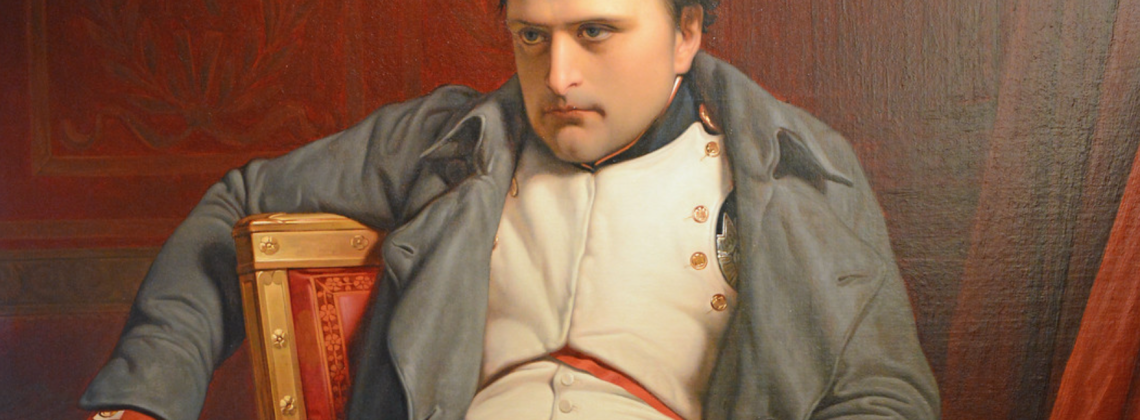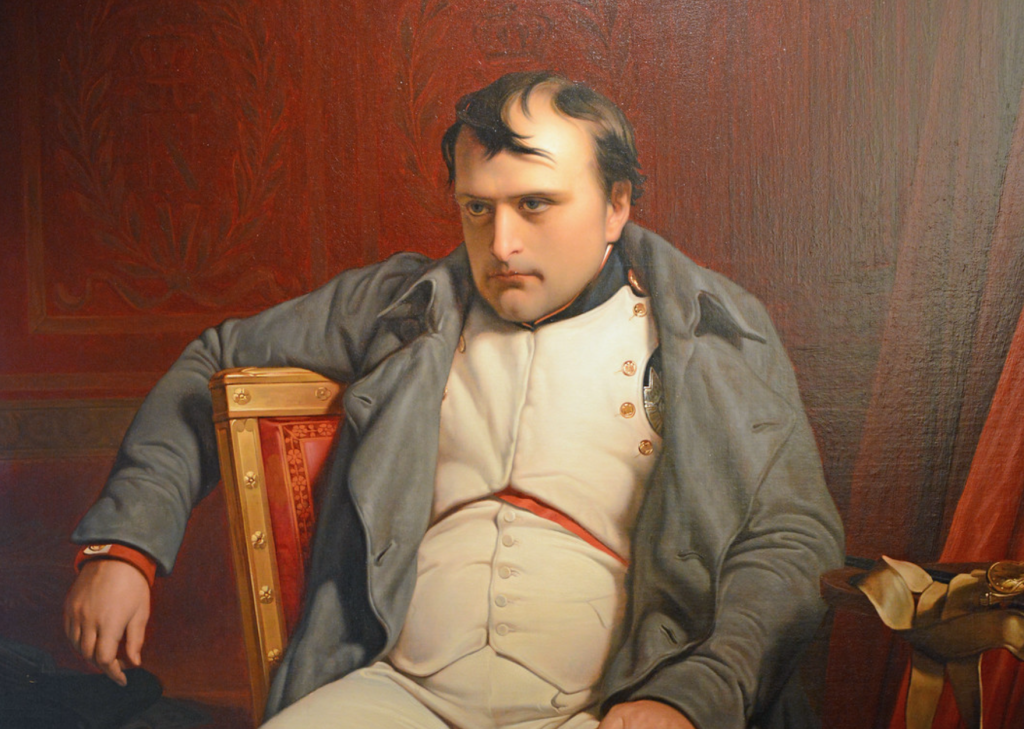

Scott’s new film only plays at history
Among my fondest undergraduate memories is a whole collection of evenings in the dining hall spent debating. One friend, Mike, was the consummate history buff, a true aficionado of military history, with whom I spent many hours debating issues such as the atomic bombings of Hiroshima and Nagasaki, or the nature of necessary collateral damage in modern warfare. I, a theorist by disposition, was inclined to idealism and disinclined to grapple with such paltry things as “facts,” or such debatable things as the concept of “necessity.” Mike, by contrast, was Machiavellian in the least pejorative sense, convinced that time spent in these conversations on what “ought” to be was, if not outright ruinous, at least largely distracting from the more interesting points at hand.
Ridley Scott’s Napoleon is, in one sense, targeted at people like Mike. In its inception, in its marketing, in its style and storytelling, it appeals to those who have spent hours poring through biographies and histories, who have studied military history and tactics, who will be on the edge of their seats not precisely because of the dramatic tension but because they are waiting to see if the well-trod paths of Napoleon are portrayed accurately and portrayed well. Watching a world-historical figure renowned for his tactical brilliance emerge from a history book to call out troop movements on screen is surely a delight to behold.
But in another sense the film seems just as easily targeted at me, a viewer whose knowledge of the troop formations at the Battle of Austerlitz is as sparse as his knowledge of the math equations used by quantum physicists. It is a movie that was made to draw in the Mikes of the world while, in its execution, designed to entertain people more like me. I lack the background that will likely lead some viewers to squeal with justifiable, nerdy delight when a well-known battleplan is called out on the screen. But this also means that I lack the background some viewers have to be sorely disappointed or disgusted when something idealized in my mind fails to be captured as I envisioned it. I am more taken by the set pieces, the drama, the romance, and the rise and fall of a supposedly great man. To both types of viewers, I expect the movie commends itself and has its respective merits and failings.
To a viewer like me, there are moments I expect to revisit. Napoleon suggests to his wife Josephine that he is “not built like other men,” that he lacks some feelings or dispositions they have. This leads to the claim at the end, on his unwitting voyage into exile, that tactics are nothing more than “geometry,” a science that could be apprehended by anyone with a sufficiently apt brain, such that any apparent failings on Napoleon’s part were mere miscommunications with his underlings. This, to me, raises questions of great import: Is it true that battlefield tactics are nothing more than advanced mathematics? Does this mean that an advanced computer could substitute for a Napoleon in the near or distant future?
It is in the times that the movie felt most flat, though, that I expect a viewer like Mike will find abundant grounds for criticism. The audience sees very few actual battles with Napoleon at the helm, a sparse number compared to his touted number of overall victories. In these battles we often see him calling out commands, occasionally winning, occasionally losing. At no point is it clear to the viewer that Napoleon’s supposed genius is on display. In the course of the story his reputation grows in France—somewhat inexplicably, given his willingness to abandon his troops in Egypt and command the slaughter of civilian protestors. His path to the imperial crown seems almost swift and painless compared to the blood and the toil that led him there.
What the viewer does see clearly through the course of the film is a Napoleon with an apparently unjustifiably lofty view of himself. This is a man as willing to praise his own “good work” after a lackluster performance in bed as to claim he has made no mistakes in his military career. This latter claim, notably, is made while being shipped to his second exile and eventual demise.
This is a man who seems to accept an imperial title without hesitation, who accuses a hereditary monarch of Russia being an upstart, and who expects a seat at the European diplomatic table while having been party to unconscionable bloodshed. We see most vividly, in other words, the least praiseworthy parts of Napoleon from any angle, from his very on-the-nose incapacity as a lover to the somehow even more dramatic failings in an Asian land war. In any case and in any context, Scott seems unwilling to show us a praiseworthy Napoleon.
The audience is offered, then, a general, a lover, an emperor, and a prisoner with more on-screen examples of a man lauding his own prowess than on-screen examples of that prowess. We see a man unwilling to learn from his (apparent) mistakes, who feels he has been undone by fortune rather than by failure. Scott’s Napoleon seems to have been stripped of whatever attributes might have qualified him for greatness, proving correct, in effect, his detractors: the high-born nobility. The movie seems single-mindedly designed to show Napoleon as lackluster, undeserving of his reputation. He has no clothes—and never has had.
On the press tour Scott has been bombastic, waving away criticisms of the historicity of things like Napoleon firing cannons at the pyramids. His entire demeanor suggests a dismissiveness of both historical fact and interpretation, and further suggests he has merely attempted to tell a good story with the rough pieces of material in front of him. But by casting Napoleon as an insecure upstart with a chip on his shoulder and an inability to learn from defeat, he is clearly taking a side in the interpretation of history. His anti-Great Man narrative is a stance as surely as a Great Man theory of history is a stance. Scott has never shied away from loose historicity in his films; the fans and detractors of Kingdom of Heaven alike will regale viewers with the factual points that Scott obscures. But here Scott feels at his most ideological or motivated, unwilling to cede ground to the Corsican General who, for such men as Hegel, seemed to herald the end of history. This tortured and largely neutered Napoleon would thus likely be a disappointment to my friend Mike and people like him. Their three hours could perhaps be better spent elsewhere.
Philip D. Bunn is a Visiting Scholar with the Lyceum Program in the Clemson Institute for the Study of Capitalism. He writes and teaches on technology, politics and literature, and the history of political thought.
Image credit: Musée de l’armée